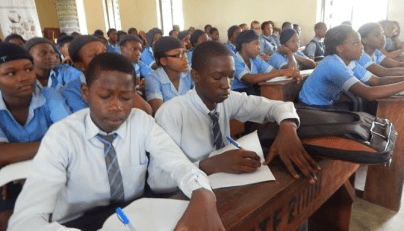The Minister of Education, Prof. Tahir Mamman, has hinted that the Federal government would review age requirement for admission into tertiary institutions in the country.
The minister, who pegged 18 years as benchmark for admission into universities, advised parents not to push their underage wards to higher institutions, especially university education, below the age of 18.
Mamman spoke to journlaits after monitoring the ongoing Unified Tertiary matriculation Examination, UTME, in some of the centres in Abuja.
The minister said he is not happy with the age of some candidates that applied to write the examination, noting that they are still far before required age to seek admission into universities.
He, however, applauded the conduct of the examination, describing it as peaceful just as he said irregularities where were visibly noticeable in the past, has drastically reduced.
He said: “The examination process is seamless. The environment is comfortable for students. That’s how it should be, especially with the use of technology in our affairs and the educational system. It makes life easy for everybody and seamless.
“As we know, this examination is going on throughout the country. It is being monitored everywhere seamlessly and from the report I have heard, the malpractice level is very low, just a 100 out of 1.2million.It is the use of technology that has made that happen, so this is very good.
“The other thing, which we noticed, is the age of those who have applied to go to the university. Some of them are really too young. We are going to look at it because they are too young to understand what the university education is all about.
“That’s the stage when students migrate from a controlled environment where they are in charge of their own affairs. So if they are too young, they won’t be able to manage properly.
“That accounts to some of the problems we are seeing in the universities.
“We are going to look at that. 18 is the entry age for university. But you will see students, 15, 16, going to the examination. It is not good for us. Parents should be encouraged not to push their wards, children too much.”
He hinted that beneficiaries of the Federal government students loan will cut across both higher education and skill acquisition, saying it was important that “students who are not being able to proceed to tertiary education, should be able to have a meaningful life even after secondary school, even primary education actually.”
According to him, the percentage of admission out of the registered number of candidates that applied, is “about 20 percent- universities, polytechnics and colleges of educations.”
He continued: “They are our children, our wards living with us. This is why the issue of skills acquisition is very important because, any students, who is not able to proceed to tertiary education, should be able to have a meaningful life even after secondary school, even primary education actually.
“The only solution to that is skill; by talking skills right from the time they entered school, for the primary school. Somebody should finish with one skill or another. That is part of the assumption of the 6-3-3-4 system.
“It is assumed that by the time a student finishes up to JSS level, he would have acquired some skills. If he does not proceed to senior secondary level, he would have acquired some skills that will help him navigate life and cease to be a burden on parents and society.
‘That is why skill is just the most important thing for us now. We are going to drive through the education sector for both public and private sectors, to empower the young ones.
“Tertiary education is encouraged but not every child needs to go to the university or polytechnic. It is mandatory and government is in support and there is a constitutional requirement to educate every Nigerian child up to that level of education. But with the introduction of the Student Loan Scheme, access will not be a problem.
“Parents will now be supported both for tertiary and even the skills we are talking about. That is one of the most important policies government has been able to provide,” he added.

 News6 years ago
News6 years ago
 Featured6 years ago
Featured6 years ago
 Boss Picks6 years ago
Boss Picks6 years ago
 Headline6 years ago
Headline6 years ago
 Headline6 years ago
Headline6 years ago
 Headline5 years ago
Headline5 years ago
 Headline6 years ago
Headline6 years ago
 Headline6 years ago
Headline6 years ago













